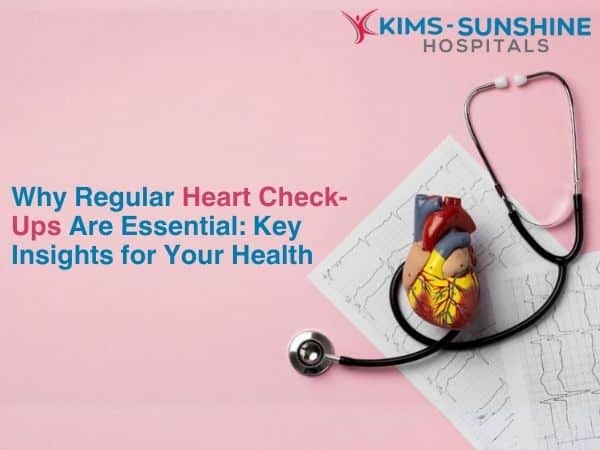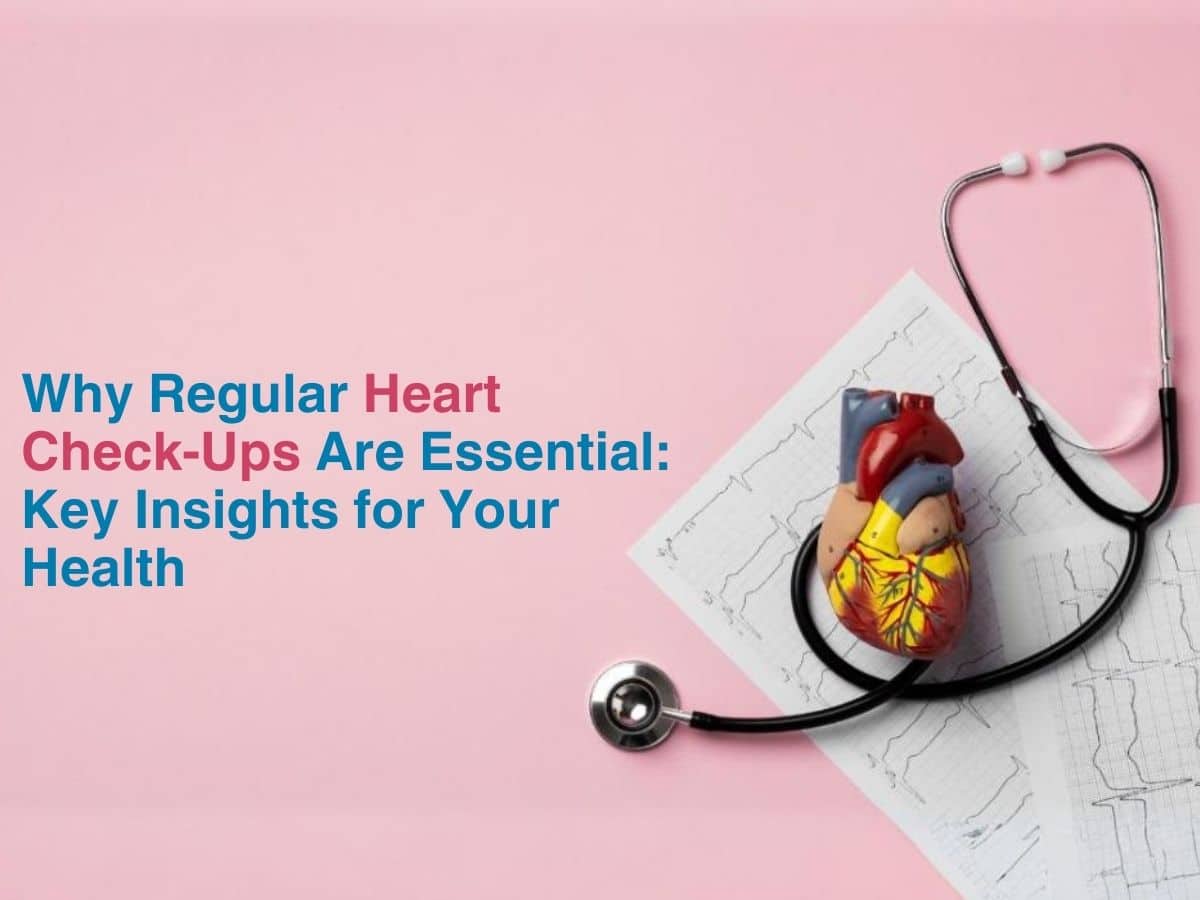
Why Regular Heart Check-Ups are Essential: Key Insights for your Health

Talk to any doctor or medical professional and they will tell you this- if you know something may be wrong, then don’t wait too long. But if you know nothing is wrong, then still getting screened is still better. When you get screened regularly, you gain key insights into your health parameters. So, when something does happen, you will know where to look, instead of wasting time trying to get an accurate diagnosis. This is where the principle of ‘early detection’ comes into picture. The earlier you find out what’s wrong, the sooner you can begin treatment and get better- leading to a better prognosis in the long run. This is especially true for the heart.
Why are Heart Health Check-Ups Necessary-
Heart check ups entail getting a few tests done to ascertain cardiac function and to also check if there are any issues present. Heart health is often ignored and this is why it is the leading cause of death in India. Getting screened annually means your doctor can tell you whether you are at any risk of developing heart disease. Even if there is some minor issue, the heart will work very hard to compensate for loss in function. If this continues for a long time, your heart can get very stressed. Doctors normally recommend you get annual screenings done once you hit your 40s or if you have a family history of heart disease.
Heart Check-Up Procedures and what to Expect-
Your heart is a machine that continues to pump blood all over your body, from birth till death. So, it makes sense for you to take good care of it because it is working so hard for you. Ascertaining how well the heart is functioning can be done with a few blood tests, an electrocardiogram (ECG) and imaging (abdominal sonography) respectively.
Some of the tests that are routinely performed are as follows-
- CBC-ESR- Complete Blood Count – Erythrocyte Sedimentation Rate- To check for inflammation or infection
- Lipid profile- to check for cholesterol and triglyceride levels
- FBS and PPBS- Checking blood glucose levels before and after a meal
- Thyroid function test (TFT)
- ECG or electrocardiogram is to check if the heart is working fine
- Echocardiogram – to check structural integrity of the heart
- Blood pressure is checked too.
- You may be given a stress test or a treadmill test- to check how your heart responds to running or any other activity that demands a sudden spike in pumping.
- Cardiac MRI- in rare cases
- Coronary CT-Angiography- to visualise blood flow in the coronary arteries in real time
Benefits of Routine Cardiac Screening-
Now that you know all about the tests that you may be asked to get done, let us see look at their advantages-
- First one is obviously early detection.
- Next- your doctor and you will get a better picture of what is really going on within your body.
- Blood tests check for hormones and certain markers that may show you have a higher risk of developing heart disease than usual.
- These tests are not too expensive either, so don’t keep putting them off for financial reasons.
- When you do these tests together, you get a very accurate diagnosis most of the time.
- For women, hormonal issues begin to show during menopause. It is hence important to prioritize these screenings once you turn 50 and above.
- You can get quicker treatment, if you get diagnosed in time. Early diagnosis means treatment methods won’t be very harsh and you can be sure of a positive prognosis at the end of it all.
Conclusion
Getting annual check ups done should be a priority as your health is important. You shouldn’t keep postponing it. This is mainly because you may be largely asymptomatic until something major happens. Subtle signs may be easily missed. We hope you will take care of your heart by eating well, exercising regularly and also taking care not to get too stressed by life. Following a heart healthy diet is the first step to better cardiac health. Talk to your doctor for more tailor made suggestions.
Frequently Asked Questions
How often should I get a heart check-up?
What tests are included in a routine heart check-up?
What are the signs that you need an immediate heart check-up?
What should I expect during my first heart health check-up?
Are there any preparations needed before a heart check-up?

Dr. Aparanji Gopidi
MBBS, MD (General Medicine), DM (Cardiology)
Associate Consultant Cardiologist






